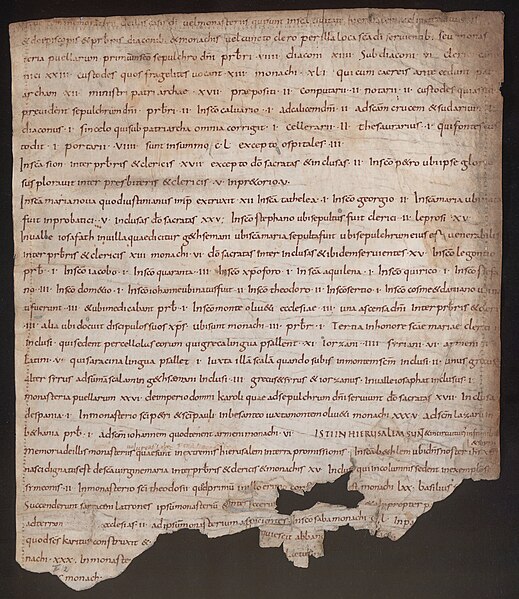The Basel roll is a manuscript containing three administrative documents in Latin from the Carolingian Empire. The documents were composed for Charlemagne during his reign as emperor (801–814) and the manuscript that survives was copied somewhat later in the ninth century. The purpose of the documents was to assess the financial needs of the patriarchate of Jerusalem in preparation for the sending of funds for its personnel and the repair of its buildings.
Charlemagne's portrait coinage, which may have been designed for use overseas
Image: Basel, Universitätsbibliothek, N I 2, fol. 12r
Image: Basel, Universitätsbibliothek, N I 2, fol. 13r
Charlemagne was King of the Franks from 768, King of the Lombards from 774, and Emperor of what is now known as the Carolingian Empire from 800, holding all these titles until his death in 814. Charlemagne succeeded in uniting the majority of Western Central Europe, and was the first recognized emperor to rule in the west after the fall of the Western Roman Empire approximately three centuries earlier. Charlemagne's rule saw a program of political and social changes that had a lasting impact on Europe in the Middle Ages.
A denarius of Charlemagne dated c. 812–814 with the inscription KAROLVS IMP AVG (Karolus Imperator Augustus)
Sketch thought to be of Charlemagne c. 800
20th-century painting of Charlemagne's coronation at Noyon in 768.
Pope Adrian receiving Charlemagne at Rome







